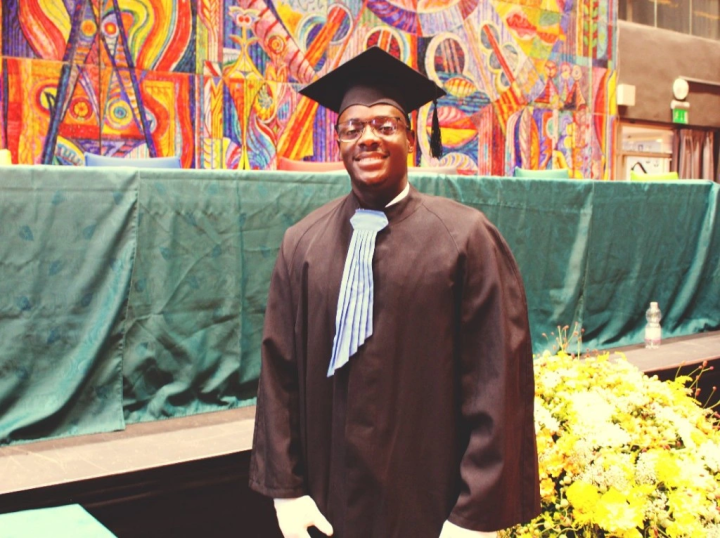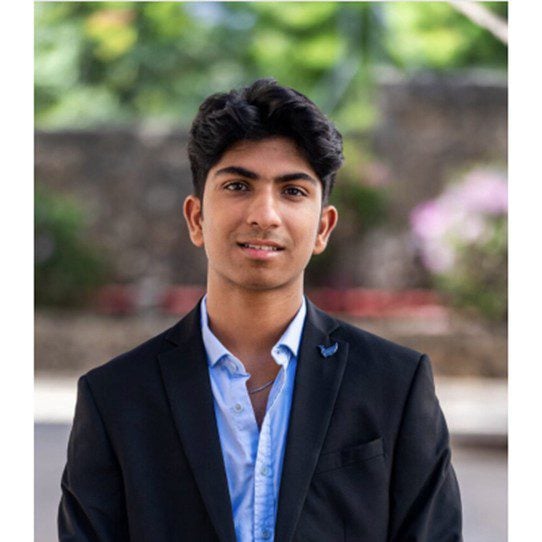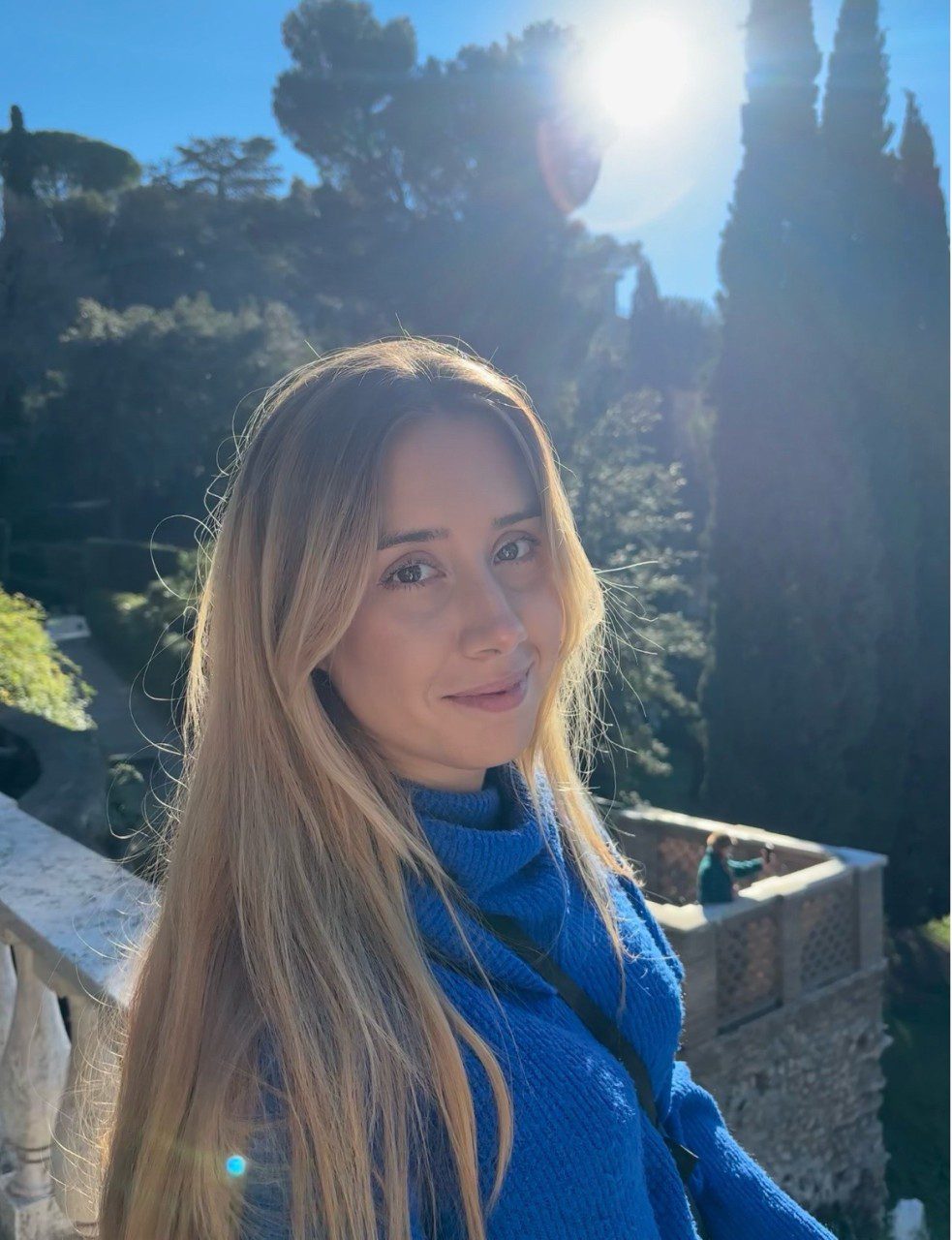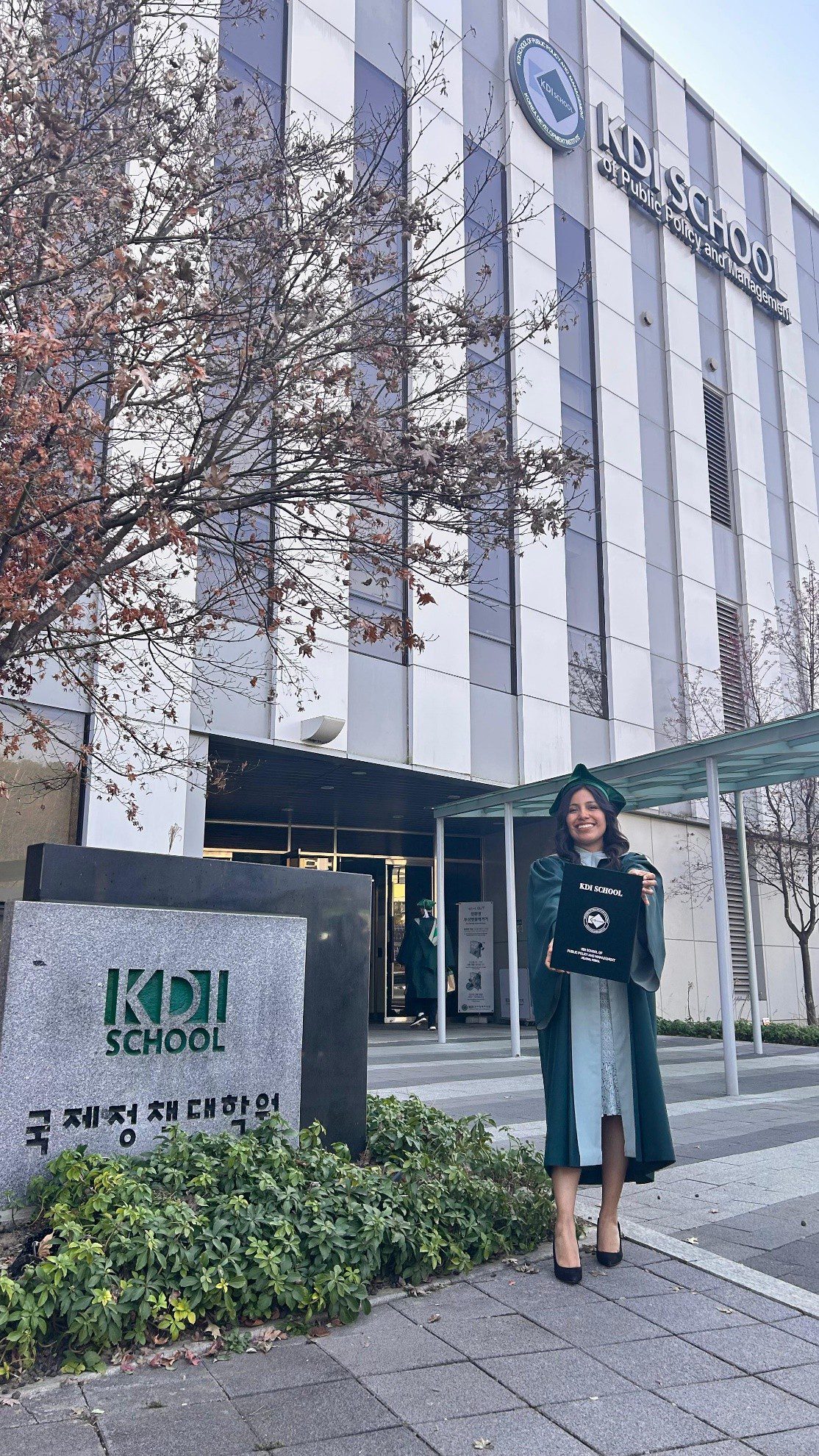How a Kenyan Food Scientist Earned Multiple Full Scholarships on His Path to a PhD in Food Safety
University: University of Alberta, Canada
Degree: PhD in Food Science and Technology
Previous Education: MSc in Food Safety and Quality Engineering – Hungarian University of Agriculture and Life Sciences; BSc in Food Science and Nutrition – Jomo Kenyatta University of Agriculture and Technology
Scholarship: Graduate Research Assistantship Fellowship – Fully Funded
Standardized Exam Scores: Duolingo (for U.S. application); Not required for Canada
Other Offered Scholarships (if any): Pangea Network Scholarship (Undergraduate – Full), Government of the Russian Federation Scholarship (Declined), Stipendium Hungaricum Scholarship (Master’s – Full), University of Arkansas Research Assistantship Scholarship (Declined)
Social Media
LinkedIn: linkedin.com/in/felix-ayiera-607012120/

The Journey
My name is Felix Ayiera, a Food Scientist and researcher from Nairobi, Kenya. I am deeply passionate about Food Safety and Sustainability Engineering, a field that focuses on enhancing the safety, quality, and utilization of food, water, and the environment through both conventional and advanced technologies.
Currently, I am pursuing a PhD in Food Science at the University of Alberta, Canada, where my research explores the efficacy of plasma nanobubble systems for biofilm inactivation. This study addresses the complex challenge of biofilm formation in the food industry, medical institutions, and water systems, with the goal of improving sanitation and disinfection methods using novel technologies.
Prior to my PhD, I completed my Master’s degree in Food Safety and Quality Engineering (with a major in Food Microbiology) at the Hungarian University of Agriculture and Life Sciences in Central Europe. My academic journey began at Jomo Kenyatta University of Agriculture and Technology, Kenya, where I earned my Bachelor’s degree in Food Science and Nutrition.
I chose to pursue further education in this field because of my strong interest in food microbiology, food safety, and quality. Growing up, I was deeply concerned by the frequent food safety issues in my community and beyond. The recurring reports of food poisoning, contamination, and spoilage ignited a desire in me to contribute to solving these public health concerns. I believe food safety is a global challenge that requires innovative and sustainable solutions, which continues to drive my passion and research efforts.
Scholarship Details
Throughout my academic journey, I have been fortunate to receive multiple scholarships that have supported my studies:
- Undergraduate Degree:
I was awarded the Pangea Network Scholarship, a full scholarship program that empowers youth in Kenya and the United States through education, life, and business skills training, financial support, and a strong network. The scholarship covered full tuition fees, a monthly stipend, and living expenses, with the stipend amount varying based on individual needs.
- Master’s Degree:
I received two scholarship offers:
- Government of the Russian Federation Scholarship (Open Door Project) – This full scholarship included tuition fees, a monthly stipend, and living expenses, with the stipend amount depending on the city of study. The application process goes through the Russian Embassy or authorized representatives in the applicant’s country.
NB: I was awarded this scholarship, but did not commit. - Stipendium Hungaricum Scholarship – Offered through the Hungarian Government and managed by the Tempus Public Foundation, this scholarship covered tuition fees, accommodation, and a monthly stipend. I committed to this opportunity and completed my Master’s in Food Safety and Quality Engineering in Hungary under this scholarship.
- PhD Degree:
I was offered two fully funded scholarships:
- Research Assistantship Scholarship – University of Arkansas (USA) – This scholarship included full tuition coverage and a monthly stipend.
NB: I was awarded this scholarship, but did not commit. - Graduate Research Assistantship Fellowship – University of Alberta (Canada) – This fellowship fully funds my PhD in Food Science and Technology, covering tuition fees and a monthly stipend. I chose this opportunity due to the strength of the research program and the alignment with my career goals in food safety and sustainability.
Educational Background
I believe my educational background has truly laid the foundation for the work I’m doing today. I began with a Bachelor’s degree in Food Science and Nutrition at Jomo Kenyatta University of Agriculture and Technology, graduating with First Class Honours. It was during this time that I developed a strong interest in food safety, thanks to my solid grounding in food microbiology, food analysis, and industrial microbiology.
To build on this, I pursued a Master’s degree in Food Safety and Quality Engineering at the Hungarian University of Agriculture and Life Sciences, where I graduated with a GPA of 4.77 out of 5.00 and was honored as the best performing student in my final exam and thesis defense. At that point, I was further deepening my knowledge and skills in the field, especially after gaining three years of experience working in the food industry.
Currently, I’m pursuing a PhD in Food Science and Technology at the University of Alberta, Canada. My research focuses on the use of plasma nanobubble technology to inactivate biofilms, which are a significant challenge in the food industry, healthcare settings, and water systems. Each stage of my academic journey has progressively strengthened my expertise in microbial food safety and advanced sanitation technologies.
How Did You Prepare to Apply to the University of Alberta?
For my Master’s degree, the application process was quite streamlined. I applied through the Stipendium Hungaricum Scholarship Program, which is managed by the Tempus Public Foundation. What I liked about it is that you apply for both the scholarship and university admission at the same time, all through one system. You’re allowed to choose up to two universities, either different programs at the same university or similar programs at two different institutions, which increases your chances of being selected. Once you're awarded the scholarship, you're automatically admitted to the university, provided you pass the interviews conducted by the respective institutions.
For my PhD, the process was more detailed and institution-specific. When I applied to the University of Arkansas, I had to go through several steps: submit an English proficiency test (I chose Duolingo due to time constraints), complete the online application, upload all the required documents, including recommendation letters, and pay the application fee. The application was then reviewed by the admissions committee. Since it was a Research Assistantship (RA) position, my prospective supervisor had already shown interest and supported my application, which really helped.
The process was similar when I applied to the University of Alberta, where I’m currently pursuing my PhD. Fortunately, Kenya is exempted from the English language requirement, so I didn't need to submit a test score. The steps still involved an online application, document submission, and departmental evaluation.
How Did You Prepare to Apply for the Scholarships?
For my undergraduate studies, I didn’t apply directly for the scholarship; it was part of a youth empowerment organization I was involved with. Based on my academic performance and recommendations, I was awarded the Pangea Network Scholarship, which fully covered my tuition, living expenses, and provided a monthly stipend.
For my Master’s degree, I explored two scholarship opportunities:
- Government of the Russian Federation Scholarship (Open Door Project) (which I ultimately did not take up): The application process went through the Russian Embassy. It required submission of original and translated academic documents, a statement of purpose, and other necessary forms.
- Stipendium Hungaricum Scholarship: This was more structured and competitive. I had to apply through the Tempus Public Foundation’s online system, uploading all required documents such as academic transcripts, recommendation letters, and a motivation letter. At the same time, I had to submit the same documents to the sending partner, which, in my case, was the Ministry of Education in Kenya. If selected, you are invited for an interview, and once you pass, you are nominated by your country for the scholarship by the Hungarian Government.
For my PhD, the process was completely different and much more challenging. I had to proactively search for professors working on topics that matched my interests, mainly in food safety, biofilm inactivation, and emerging technologies. I went through their published research, checked if they had ongoing funded projects, and whether they were open to accepting new PhD students.
Then came the hard part, cold emailing. I drafted personalized emails, introduced myself, described my research interests, and asked if they were accepting PhD students or had any open positions. Honestly, it was one of the toughest parts of my journey. I sent hundreds of emails, some were ignored, some declined, and a few responded positively. But it was through this process that I finally secured my Graduate Research Assistantship Fellowship, which I am now using to pursue my PhD at the University of Alberta
What Do You Think Made Your Application Stand Out?
Honestly, it's hard to say with certainty what exactly made my scholarship applications stand out. I think it was a combination of factors. First, I put a lot of hard work and thought into each application. My strong academic background, especially graduating with First Class Honours in my undergraduate studies, likely played a significant role. Maybe it was also my leadership experiences or the professional work I did after my bachelor's; those real-world skills definitely added depth to my profile. Or maybe it was just timing and a bit of luck. With competitive scholarships, the pool is full of brilliant and capable people, so your application really has to be top-notch to stand out.
For my PhD, I believe what made the difference was persistence. I applied to many programs, including Ivy League institutions, and learned from every rejection. I kept refining my personal statements and research proposals, and over time, my application became much stronger. By the time I applied to the University of Alberta, I had a well-polished, experience-backed application that reflected both growth and resilience. That, I think, is what finally set me apart.
What Would You Have Done Differently if You Were Going Through the Process Again?
To be honest, every application comes with its own set of challenges, and how you respond to them makes all the difference. I faced many rejections along the way, and there were times I almost gave up. Looking back, yes, I could have made different choices, but there’s no guarantee they would have led to the same positive outcome.
If there’s one thing I would do differently, it would be to take it a bit easier on myself. I put a lot of pressure on myself, applying for scholarships almost every day while also working. It was mentally and emotionally exhausting. Sometimes when I look back at some of the rejections, I realize that I was pushing myself too hard. If I were to go through it again, I’d focus on making a few strong, well-prepared applications instead of spreading myself thin. And most importantly, I’d learn to trust the process more, do my best, pray, and leave the rest to God.
What Advice Would You Give Those Looking to Apply for a Similar Scholarship?
My biggest advice is to stay focused and determined, especially when facing rejection. Don’t take rejection personally; it’s not the end; it’s just part of the process. You’re not alone, and many people have faced similar setbacks before succeeding. There are genuine communities and individuals out there who are willing to support and guide you because they believe in your potential.
Take care of your mental and emotional health along the way. Engage in extracurricular activities and community development; not only do they help build your profile, but they also keep you grounded. Rejections can feel especially hard when you’ve invested time, money, and energy, but don’t let that stop you.
Also, don’t underestimate the power of networking. Connect with people on LinkedIn or other platforms who’ve gone through similar paths. Ask questions, seek mentorship, and apply the insights you gain.
Most importantly: dream big, stay focused, and be consistent. That’s what will carry you through.
Want to submit your
scholarship journey?
Submit Your Story Here!
More Scholarship Recipients

My name is Arsh Dharani, and I am an international student originally from the Democratic Republic of the Congo (DRC). I am .... Read more

Hi! My name is Arawa. I’m a Marie Skłodowska-Curie PhD researcher working on AI-based neuroimaging biomarkers for Parkins .... Read more

Hello! My name is Alexandra Eras, and I am from Ecuador. I studied Economics and completed a major in Gender, Violence, and .... Read more

Leave A Comment